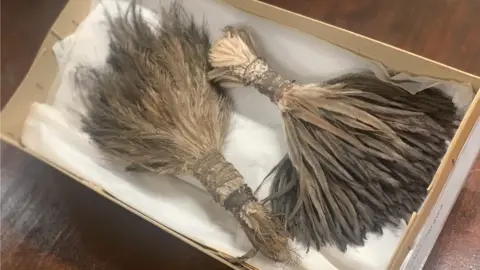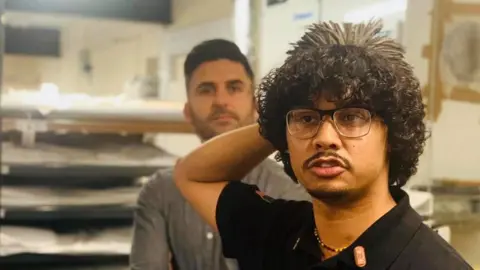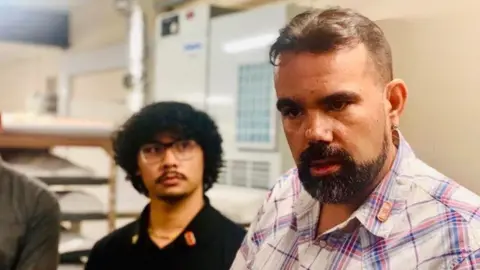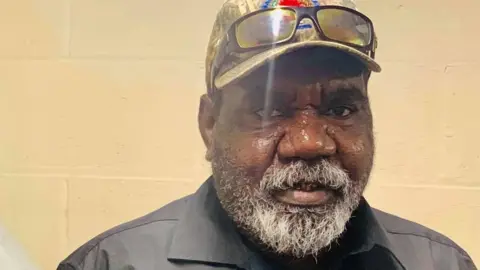Manchester Museum returns 'stolen' sacred Aboriginal artefacts
 BBC
BBCAboriginal artefacts taken from Australia more than 100 years ago have been handed back by museum bosses.
Indigenous leaders visited Manchester Museum to collect 12 items, including sacred ceremonial artefacts and a garment made with emu feathers.
Mangubadijarri Yanner said the treasures had been "taken without our permission" by early 20th Century British colonialists.
Museum director Esme Ward welcomed the Australian visitors "as friends".
Of the decision to return the pieces, she said repatriation was "so often framed around what we lose rather than what can be gained".

Christopher Simpson, a director of the Australian Institute of Aboriginal and Torres Strait Islander Studies, said members of the delegation could not discuss or even describe the "secret sacred items" because they are deemed to be "living beings".
He said he was happy to be working with Manchester Museum because "what Manchester does today, the world will do tomorrow".
Mr Simpson said he hoped other British museums would follow suit.

Stephen Welsh, curator of Living Cultures at Manchester Museum, described the collection as "a product of empire", originally built on "racial hierarchies, cultural hierarchies, social Darwinism".
Donald Bob, elder of the Gangalidda Garawa nation, emotionally described seeing the sacred items for the first time.
He said he "felt cold because it was the person of that thing, that spirit" speaking to him "crying for his home".
Danny Teece-Johnson, a journalist for Australia's National Indigenous Television (NITV), told the BBC he felt "a sense of hurt and pain and anger" about the items.
"You're saying borrowed, you're saying this and that," he said. "Nah, let's talk about the white elephant in the room: You stole it, you took it without permission, that's theft.
"If you did that these days, you'd get put in jail for it."
The formal repatriation ceremony will take place at Australia House in London on Friday.
The Gangalidda Garawa delegation will return to Australia on Saturday.


A Freedom of Information request by the BBC found that, as of June, Manchester Museum had received four repatriation requests during the last 10 years.
- A skull from Hawaii which an Indigenous group asked to be returned in 2010. This will remain at the museum until a clearer provenance can be determined.
- A fan, also from Hawaii, made of woven grass with human hair used to stiffen the ribs. When the request was made by an Indigenous group in 2011, it was decided it would remain at the museum until suitable storage could be identified.
- An Indigenous group from Canada asked for the return of several human remains in 2012. An archaeologist acting on behalf of the group concluded that there was insufficient human remains to make a claim.
- The Museum of New Zealand - Te Papa Tongarewa - asked for a Moriori jawbone to be returned in 2016. It was sent back a year later.

